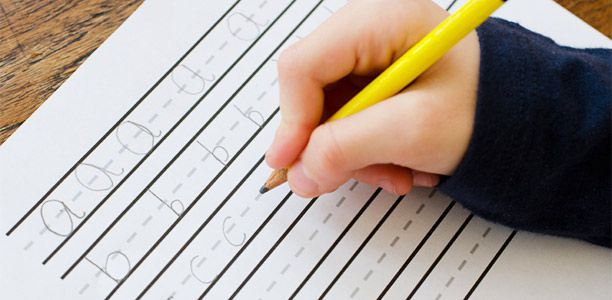A new study reveals children’s language development is a learnt skill and is intricately linked to their ability to recognise patterns in their environment.
Conducted by researchers from the University of Sydney and Australian National University, the study found children who were better at identifying patterns in non-verbal tasks also had better knowledge of grammar.
Even when other important factors such as intelligence and memory were taken into consideration, the findings still suggest the skill of pattern learning is strongly associated with language development.
For centuries scientists have grappled with the reason why some children acquire language faster than others, and debated whether language is innate or learnt.
Associate Professor Evan Kidd form the Australian Research Council Centre of Excellence for the Dynamics of Language said the findings counter traditional theories of language, which argue that grammar cannot be learnt.
“For a long time people thought of grammar as some sort of special cognitive system, like a box in our brain that we are born with, but our study shows that language proficiency is associated with learning – which helps to explain why some people pick it up faster than others,” said Professor Kidd.
“These findings are exciting because in the long-term they could help us develop strategies to assist children who may not be typically developing for their age.”
Published in Child Development, the study assessed 68 children aged six to eight years on two critical yet separate tests – one on grammatical knowledge and the other a visual pattern learning task including an exposure phase (where children aren’t asked to learn anything) and a surprise test phase.
There was a strong connection between those who were able to identify the patterns in a seemingly trivial series of alien cartoon sequences on the computer, and those who performed better on the grammar test.
Psycholinguist Associate Professor Joanne Arciuli from the University of Sydney said the research shows children have a remarkable capacity to learn without conscious awareness.
“The study tells us that we have a whole lot of little statisticians running around,” said Associate Professor Arciuli, co-author of the study and an Australian Research Council Future Fellow.
“Unbeknownst to children themselves their brains are constantly computing these patterns or statistics – for example which words co-occur regularly, which words follow others, and different contexts in which words are used.”
“Their ability to identify patterns is very much related to how they learn to use the conventions of language.”
Based on these findings, the researchers have been funded by the Australian Research Council to carry out a three-year study further investigating the underlying cognitive mechanisms of language development in kids.
Currently recruiting five year olds, it is the first longitudinal study to look at how recognition of statistical patterns is related to children’s learning of grammar, one of the most important aspects of language acquisition.
“This research is vital as we know that language development and the ability to communicate is strongly linked to positive life outcomes, including academic achievement, employment and mental health,” said Associate Professor Arciuli.
(Source: University of Sydney, Child Development)
Pattern learning key to children's language development
- Advertisement -
Date Created: May 12, 2016










